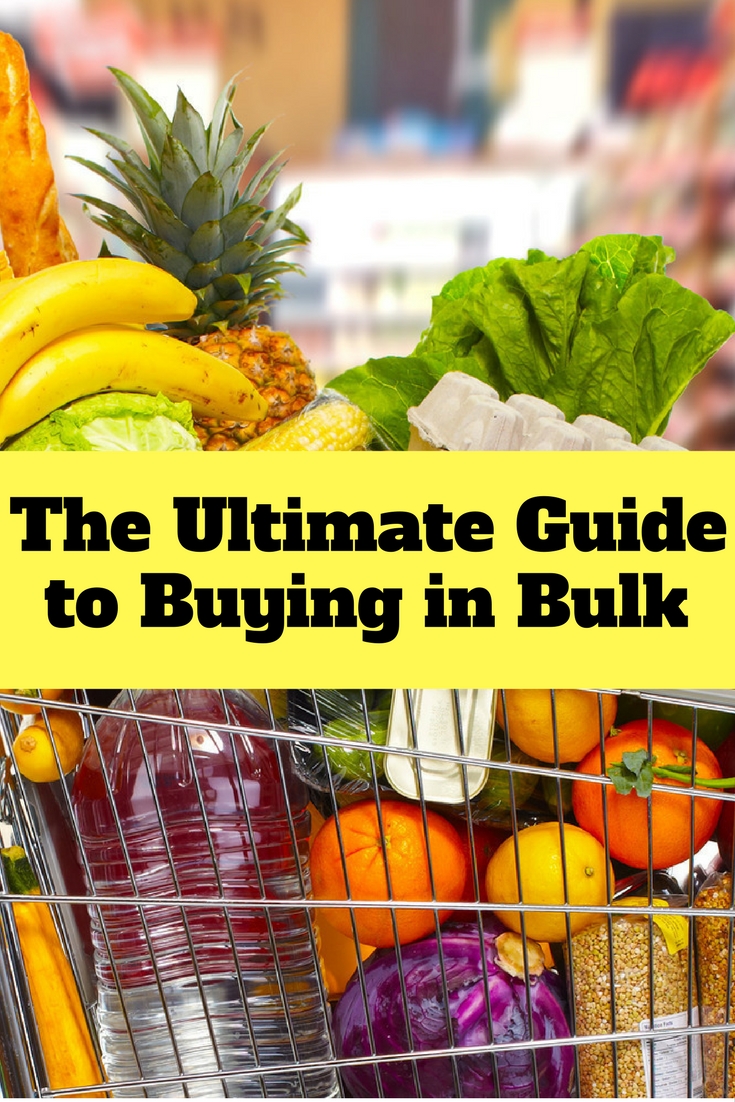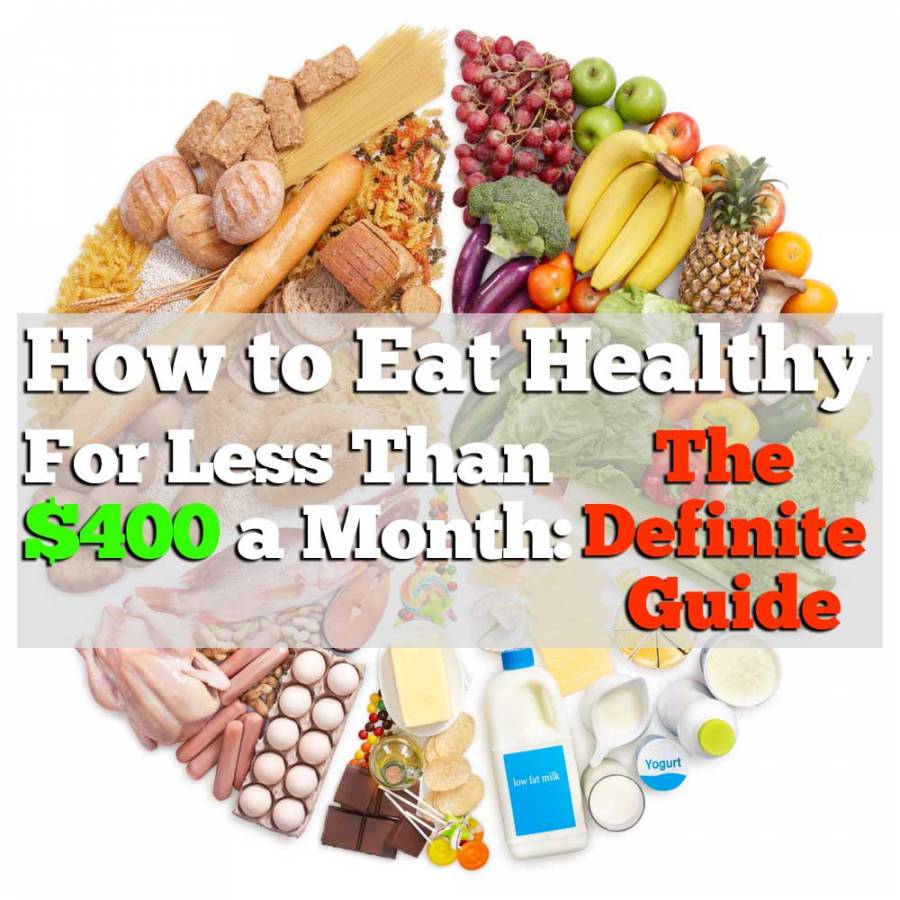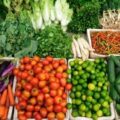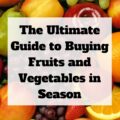
As frugal people, we are always looking for great buys. Bulk buying is a great way to save money. Sure, getting good deals takes time and planning, but if you make it a habit, you can afford quality products and lower your family's monthly expenses.
Why Buy in Bulk?
Image source: money.howstuffworks.com
Buying in bulk takes more thought and advance planning on your part than running to the store when you need an item. Is it worth it? We think it is. Here are our top reasons for buying in bulk.
-
Buying in Bulk Can Save You Time and Money
The main reason people buy in bulk is to save money. Buying wholesale allows you to save on packaging and middlemen, and usually saves you money per-unit. Additionally, what many people don’t think about is that when buying in bulk, you will make fewer trips to the store which will save you time as well as gas money.
-
It Is Environmentally Friendly
Buying in bulk cuts out a lot of packaging. If more Americans bought household staples in bulk, that means less garbage end up in landfills each year. Bulk buying can also reduce CO2 gas emissions since suppliers would need to move fewer items.
-
Bulk Buying Can Lead to Healthier Eating
Most bulk sections of the grocery store stock healthy food options. Through eating foods from the bulk section, your diet will become more wholesome and nutritious.
-
Bulk Doesn’t Always Mean Large Quantities
Some people shy away from buying in bulk because they can't handle a large amount of bulk product. Many grocery stores have bulk bins where you can buy as much or as little as you like. Buying from bulk bins allows you to take a small amount to try, and if you don't like it, you aren't left with the rest of the bag to rot in your kitchen.
-
Promotes Local Sustainability
Whenever it is possible, it should be a priority to make purchases directly from the producer. Buying in bulk from a local farmer will save you money, will give you access to better quality products, and will stimulate the local economy.
What to Buy in Bulk?
 Not all items should be purchased in bulk. Many food items will go bad too quickly to make a bulk sale worth it, and some are simply not worth your time. Here is a list of common items that are usually a better deal when bought in bulk.
Not all items should be purchased in bulk. Many food items will go bad too quickly to make a bulk sale worth it, and some are simply not worth your time. Here is a list of common items that are usually a better deal when bought in bulk.
-
Nuts and Seeds
Nuts and seeds, when bought in small amounts at the store, can cost more than the average household can afford on a regular basis. Buying nuts and seeds in bulk can make these tasty and healthy snacks affordable. Make sure if you buy these items in bulk that you have freezer space to keep them from spoiling.
-
Pasta, Rice, Beans, and Other Dry Food Items
Pasta, when stored in an airtight container, can keep for up to two years. Keeping different pasta options on hand will ensure that you always have an easy dinner for busy nights. The same goes for items such as rice, beans, oatmeal, quinoa, and many other dry food items. These items are easy to find in most grocery store bulk sections, are simple to store and can be prepared in a hurry. Grains can be hard to keep for long periods of time because pests can be a problem. Freezing is a good way to preserve larger amounts of grains if you have space. If you can't store large bags of grain long-term in your freezer, you can keep your excess grains in the freezer for about a week to kill any pest eggs. After that, you can store them in a cool, dry and dark place. Keeping grains in a tightly sealed container is a must.
-
Spices
Most bulk sections in grocery stores have a wide selection of spices that you can purchase by the ounce or pound. Buying spices in bulk is cheaper than buying the small bottles of spices. The bulk section allows you to buy smaller amounts of spices, which is helpful when you only need a tiny pinch of a more obscure spice for a recipe.
-
Fruits and Vegetables
Especially when locally in season, you can find awesome deals on fruits and vegetables. Look in grocery stores, farmer's markets, and local produce auctions to find bulk produce on sale. Many types of produce, especially fruits like strawberries, raspberries, and blueberries, are extremely easy to freeze and will keep for months. See if you have any friends interested in a canning bee or freezing party to preserve fruits and vegetables. Fruits and vegetables that are canned or frozen can last over a year if packaged properly. Other options are dehydrating or constructing a root cellar.
-
Meat
Buying a whole or half animal from a local farmer allows you to save money on quality cuts. When you buy a whole or half animal (pig, cow, lamb, etc.), you pay the same amount for every lb of the animal (both ground meat and roasts/steaks). Usually this price is lower than grocery store ground meat, and much lower than the higher quality cuts. Buying local also supports small farmers growing sustainable food and helps boost the local economy. If you decide to buy meat in bulk, make sure that you have enough freezer space before you commit to buying. A general rule of thumb is that one cubic foot of freezer space can hold 30-35 pounds of meat. A whole cow is usually 450 lbs, a pig is usually 144 lbs. Plan accordingly. Used freezers can be easily found on Craigslist or Freecycle.
-
Batteries
You can save quite a bit of money by buying lithium or alkaline batteries in bulk. These batteries have a long shelf life, and by keeping batteries on hand, you never have to worry about losing power to your favorite battery powered electronics.
-
School Supplies
School supplies is another area that can cost quite a fortune when back-to-school shopping. Instead, you can save yourself time and money by stocking up on folders, pencils, notebooks and other usual supplies and saving the extra supplies for the following year.
-
Toiletry Items
Toilet paper and other staple household items won’t go bad sitting in your storage closet for years, unlike perishable food products. You can save up to 50% by purchasing toilet paper in bulk compared to buying single rolls as you need them. Toothpaste, shampoo, conditioner, and soap are items that will last and are usually cheaper in bulk amounts.
-
Disposable Kitchenware
Disposable plates, cups, bowls, and silverware are great bulk buys. As long as you have the storage space, you can save a lot of money by stocking up when you see good deals on disposable kitchenware.
-
Gift Cards
This is a lesser known bulk item that can save you money. Gift cards are often sold at a discount if you buy them in bulk. If it is common practice for you to slip a gift card into special occasion cards for people, buying gift cards in bulk will save you money and time. Pick up a pack and keep them in the drawer with your greeting cards. You can also save money for yourself by buying gift cards in bulk for stores where you shop often and using the gift card when you shop.
👉 30+ Actionable Ways To Reduce Your Living Costs.
How to Store Your Bulk Products
Image source: decoratrix.com
If you have decided that you want to start buying in bulk, you will now have to figure out how to store your purchases. Here are some tips.
-
How to Store Perishables
When figuring out how to store your perishable purchases, the first thing to do is to choose the right container. Use only food grade containers. Using non-food grade containers like shopping bags or trash bags can let chemicals or dyes leach into your food. You then need to decide on the correct location for your food items. Meat, poultry, fish, eggs, and dairy will go bad quickly. They should be kept in the refrigerator and used quickly. Some fruits and vegetables like bananas, avocados, tomatoes, onions and sweet potatoes should be kept in room temperature. Most fruits and vegetables can be frozen to last many months.
-
Label
Make sure when buying in bulk that you label everything with the contents, date, and expiration date. It may be a good idea to keep a master list of what you have in stock so that you can use up your items before they go bad. This will also help with weekly meal planning.
-
Finding Room
Most people do not have the luxury of a huge kitchen with vast amounts of storage space, so you will probably have to get creative with storage solutions. Perhaps you want to create a special pantry shelf in the basement or store smaller quantities in glass jars on an open kitchen counter. If you have lots of open wall space, consider installing shelves to hold containers of bulk goods.
Tips for Getting Good Bulk Deals
Image source: goaptaris.com
The goal of buying in bulk is to save you money. This means you need to have a good head on your shoulders when planning your bulk buys so that you can be sure you are actually getting good deals. We’ve listed a few helps to keep you from spending more than you should.
-
Compare Per-Unit Prices
The only way to make sure you are getting a better deal on bulk items is to compare per-unit prices (per ounce, pound, etc.). To become good at bulk shopping, you need to be able to calculate the price per unit efficiently. For example, when comparing ketchup, don’t compare bottle to bottle. Compare fluid ounce to fluid ounce. It doesn’t matter what size the sum of the units is, what matters is the unit price. Don't assume that bulk is cheaper. Always compare prices.
-
Don’t Get Sucked Into Deals for Items You Wouldn’t Normally Buy
Usually, the shoppers who are good at saving money through finding good deals are also the shoppers that have a hard time passing them up, even if they don’t need the product that is on sale. Don't get sucked into sales that cause you to spend more than you had planned.
-
Only Make Bulk Purchases of Items You Use Often
Especially in warehouse stores, it can be difficult to pass on bulk item deals. However, if you can’t use all of the product before it goes bad, you will not save money in the long run. To make matters worse, the now wasted product has taken up your precious storage space for the past couple of months. Make a list of food and household items you buy regularly, and then keep your eyes out for these products when they go on sale at the stores.
-
Certain Warehouse Items Have Higher Savings
According to one blogger, who compared the prices of 175 items from Sam’s Club to his regular grocery store prices, buying wholesale saves on average 31%. Some of the biggest savings were found in cereal, bread, cooking/baking, and snacks at 40% savings. Raisins, syrup, bottled water, and sandwich bags came in at 66%, and generic household goods (such as aspirin or hand soap) saved a whopping 83%! It pays to do the math.
-
Go in on Bulk Buys with Friends and Family
Ask around in your friends and family to see if anyone is interested in saving money through bulk buys. Then, if you ever find a good deal but can’t handle the amount, you can split it among your frugal minded friends, and everyone saves money. For example, if you buy a 50 lb bag of rice and split it four ways, each person will end up with 12.5 lbs, which is a much more manageable amount.
-
Save Money with a Buying Club
Buying clubs save you money by cutting out the middleman and directing those savings back to you. Oftentimes, these cut out the major retailers and help you purchase food directly from farmers. This allows you to get healthier food than you could get in the grocery store, and usually, you don't have to store huge amounts of product.
-
Check out the Local Farmer’s Market
Buying in bulk from a farmer is usually the best way to get large quantities of seasonal organic produce at lower prices than the grocery store. Ask around to see if any farmers give deals. If you go in on a bulk case with a friend, you can split the goods and both enjoy the savings.
-
Ask Your Grocer for Unadvertised Bulk Discounts
Some grocery stores offer discounts when items are bought in bulk, but most of the time this isn’t advertised. You can save 5-10% more by calling ahead to pre-order full cases or sacks of food items. Try calling a few grocery stores in the area and see if they’ll give you a bulk discount. You never know unless you ask.
-
Stack Coupons
Buying in bulk saves you money, but buying in bulk with coupons saves you a LOT of money. If you happen to be a couponer already, consider using coupons to take money off of a bulk sale. Save and organize good coupons, and then keep your eyes out for when locals stores put the coupon items on sale. Most stores will work with you on this, especially if you explain before you checkout that you plan to use coupons.
-
Bring Your Own Containers
Some stores will give a discount if you bring your own containers to fill from the bulk bins. If you bring the jars you would store them in anyway, it will also save you the time it would normally take you to transfer everything to the shelves. Don’t forget to subtract the container’s weight from the total item weight so you’re not overcharged.
What NOT to do when buying in bulk
Image source: crowdsocial.com
To make sure you are successful in bulk buying, here are some important “what not to dos” to think about when you are looking for deals.
-
-
Do NOT Purchase Bulk Items You Do Not Have Room to Store
If you have a lot of storage space, you don’t need to worry too much about how much you buy. However, most people are limited on storage and so you will have to be strategic about how much you buy at once. You don’t want to turn your living room into a storage room because you overestimated how much space you had left on your shelves.
-
Do NOT Bulk Buy a Product You’ve Never Tried Before
If you buy a product in bulk, whether a food or household item, and find out it doesn’t work for you or you don’t like the taste, now you are stuck with a lot of unusable product. See if you can find the same product in a smaller amount to try first, and then when you know it is a good buy, save money by buying it in bulk.
-
Do NOT Buy Perishable Goods in Bulk Unless You Can Process It Right Away
Unless you have set aside time to process (either can or freeze) a large amount of perishable items, do not buy these in bulk amounts. Sometimes you can save a lot of money through bulk produce deals, especially from a farmer in season. If you are going to snatch up a produce deal, make sure you can process it immediately to avoid waste. If your purchase goes to waste, not only did you lose money on the sale, but now you have to clean up a gross mess.
-
Do NOT Lose Track of Your Inventory
If you get in the habit of buying in bulk, it will become second nature to run to the place your purchases are stored to get a refill when needed. Make sure to watch the levels of your bulk inventory to make sure you do not run out and find yourself in a pickle. Generally, it’s a good idea to start looking for another bargain when you have about a month’s supply left. Once you’ve been bulk shopping long enough, you will get a good grasp of how fast you go through certain items and how often you need to stock up.
-
Do NOT Buy Everything in Bulk at Once Unless You Have Huge Amounts of Excess Money
It can be tempting, especially when you first start buying in bulk, to want to buy everything at once to stock up on savings. However, buying in bulk means you have to pay a larger upfront cost, although it should save you money in the long run. You need to ease into bulk buying slowly, or your bank account will not be happy.
-
Did you enjoy our list of tips on how to save money by buying in bulk? If you are frugal, buying in bulk is a good skill to learn and will greatly benefit your family. Do you have any additional tips on how to buy in bulk wisely? Maybe a memorable deal made through buying in bulk? We'd love to hear! If you liked this article, don't forget to share it!




